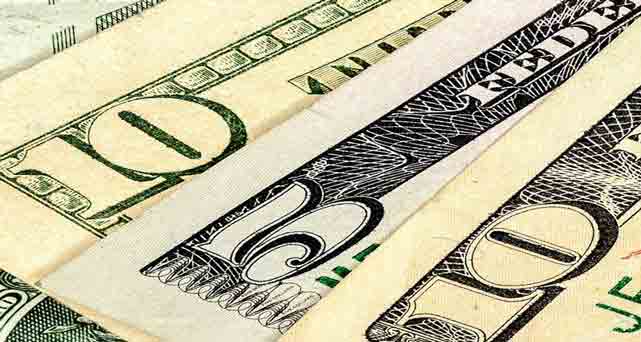Pound Sterling Retreats vs Euro, Dollar as August Rate Cut Seen Likely
June 21, 2024 - Written by John Cameron

The Pound lost ground on Thursday as Bank of England (BoE) rhetoric increased market bets on an August rate cut.
The Pound to Dollar (GBP/USD) exchange rate dipped to 1.2680 and not far above 5-week lows while the Pound to Euro (GBP/EUR) exchange rate retreated to 1.1830 from earlier highs above 1.1850.
Solid risks conditions limited selling pressure on the Pound with net gains for equities while the dollar was resilient despite weaker than expected US data as bond yields increased.
GBP/CHF bucked the trend with a jump to just above 1.13 as the Swiss National Bank cut interest rates to 1.25% from 1.50%.
The BoE held interest rates at 5.25% following the latest policy meeting which was in line with consensus forecasts.
There was a 7-2 vote for the decision for the second meeting in a row as Dhingra and Ramsden again voted for a 25 basis-point cut to 5.00%.
There was significant evidence of division within the majority on the committee.
Some of the seven members were still concerned over inflation trends while others were more comfortable with the situation and still considered that underlying disinflation remained on track.
According to these members the decision was finely balanced.
This division and commentary increased speculation that a rate cut was close.
The BBC reported that three members described the decision as finely balanced, increasing expectations that a majority on the committee will back a rate cut in August.
According to ING; “The Bank has generally been more reluctant than the European Central Bank to pre-commit to a course of action ahead of time.”
It added; “But it's clear the committee is getting closer to the point of cutting rates. Assuming the next inflation report in mid-July doesn't contain any nasty surprises, we still think the Bank will vote for a rate cut in August.”
Danske Bank added; “We expect the data releases to show further signs easing inflationary pressures and wage growth to level off, leaving the BoE comfortable enough to opt for a rate cut at the August meeting. Risks are however to a later start to the cutting cycle if we get a topside surprise to especially service inflation.”
Kathleen Brooks, research director at XTB, commented; “To sum up, the BOE’s statement and minutes have kept ajar the door for an August rate cut, as they have acknowledged the progress made on inflation to reach the 2% target. The market is taking this as a dovish sign, and are increasing their bets for an August rate cut.”
The bank stated that the General Election campaign did not have an impact on this week’s decision, but there was still a political element with the bank constrained in its commentary.
In this context, forward guidance after the election will be very important.
ING commented; “Watch out for any speeches getting put into the calendar just after the UK election on 4 July, where officials like Bailey or his deputy governors/chief economist might look to firm up expectations for a summer cut.”
According to ING the dollar can be resilient in the near term and it added; “the risks of sterling weakness emerging over coming months should largely be witnessed in GBP/USD, which we expect to trade back under 1.25.”
As far as US data is concerned, initial jobless claims declined to 238,000 in the latest week from a revised 243,000 the previous week, but above expectations of 235,000 while continuing claims increased to a 3-month high of 1.83mn from 1.81mn.
Housing starts declined to an annual rate of 1.28mn from a revised 1.35mn and the weakest reading for nine months while building permits dipped to 1.39mn from 1.44mn.
The June Philadelphia manufacturing index retreated to 1.3 from 4.5 in May and below consensus forecasts of 5.0.
Employment declined on the month, but inflation pressures increased slightly.
Companies were less confident over the outlook while prices are expected to increase at a sharper rate.
The data triggered fresh reservations over the growth outlook, but inflation concerns will persist.
The first-quarter current account deficit widened to $238bn from a revised $222bn previously.
The data tends to receive little attention, but ING commented; “We concluded that the vast majority of money going into the US over recent quarters was into long-term debt securities. This serves as a reminder that whoever is in the White House come January 2025, there is no room for complacency on US debt and the kindness of strangers.”
STORY LINK Pound Sterling Retreats vs Euro, Dollar as August Rate Cut Seen Likely

The Pound lost ground on Thursday as Bank of England (BoE) rhetoric increased market bets on an August rate cut.
The Pound to Dollar (GBP/USD) exchange rate dipped to 1.2680 and not far above 5-week lows while the Pound to Euro (GBP/EUR) exchange rate retreated to 1.1830 from earlier highs above 1.1850.
Solid risks conditions limited selling pressure on the Pound with net gains for equities while the dollar was resilient despite weaker than expected US data as bond yields increased.
GBP/CHF bucked the trend with a jump to just above 1.13 as the Swiss National Bank cut interest rates to 1.25% from 1.50%.
The BoE held interest rates at 5.25% following the latest policy meeting which was in line with consensus forecasts.
There was a 7-2 vote for the decision for the second meeting in a row as Dhingra and Ramsden again voted for a 25 basis-point cut to 5.00%.
There was significant evidence of division within the majority on the committee.
Some of the seven members were still concerned over inflation trends while others were more comfortable with the situation and still considered that underlying disinflation remained on track.
According to these members the decision was finely balanced.
This division and commentary increased speculation that a rate cut was close.
The BBC reported that three members described the decision as finely balanced, increasing expectations that a majority on the committee will back a rate cut in August.
According to ING; “The Bank has generally been more reluctant than the European Central Bank to pre-commit to a course of action ahead of time.”
It added; “But it's clear the committee is getting closer to the point of cutting rates. Assuming the next inflation report in mid-July doesn't contain any nasty surprises, we still think the Bank will vote for a rate cut in August.”
Danske Bank added; “We expect the data releases to show further signs easing inflationary pressures and wage growth to level off, leaving the BoE comfortable enough to opt for a rate cut at the August meeting. Risks are however to a later start to the cutting cycle if we get a topside surprise to especially service inflation.”
Kathleen Brooks, research director at XTB, commented; “To sum up, the BOE’s statement and minutes have kept ajar the door for an August rate cut, as they have acknowledged the progress made on inflation to reach the 2% target. The market is taking this as a dovish sign, and are increasing their bets for an August rate cut.”
The bank stated that the General Election campaign did not have an impact on this week’s decision, but there was still a political element with the bank constrained in its commentary.
In this context, forward guidance after the election will be very important.
ING commented; “Watch out for any speeches getting put into the calendar just after the UK election on 4 July, where officials like Bailey or his deputy governors/chief economist might look to firm up expectations for a summer cut.”
According to ING the dollar can be resilient in the near term and it added; “the risks of sterling weakness emerging over coming months should largely be witnessed in GBP/USD, which we expect to trade back under 1.25.”
As far as US data is concerned, initial jobless claims declined to 238,000 in the latest week from a revised 243,000 the previous week, but above expectations of 235,000 while continuing claims increased to a 3-month high of 1.83mn from 1.81mn.
Housing starts declined to an annual rate of 1.28mn from a revised 1.35mn and the weakest reading for nine months while building permits dipped to 1.39mn from 1.44mn.
The June Philadelphia manufacturing index retreated to 1.3 from 4.5 in May and below consensus forecasts of 5.0.
Employment declined on the month, but inflation pressures increased slightly.
Companies were less confident over the outlook while prices are expected to increase at a sharper rate.
The data triggered fresh reservations over the growth outlook, but inflation concerns will persist.
The first-quarter current account deficit widened to $238bn from a revised $222bn previously.
The data tends to receive little attention, but ING commented; “We concluded that the vast majority of money going into the US over recent quarters was into long-term debt securities. This serves as a reminder that whoever is in the White House come January 2025, there is no room for complacency on US debt and the kindness of strangers.”
International Money Transfer? Ask our resident FX expert a money transfer question or try John's new, free, no-obligation personal service! ,where he helps every step of the way, ensuring you get the best exchange rates on your currency requirements.
TAGS: Pound Sterling Forecasts
Comments are currrently disabled
Related Stories:
- Pound Sterling Jumps against Euro and Dollar on "Stable" UK Jobs Market - February 18, 2025
- Mann Inflation U-Turn Curbs Pound Sterling Support - February 11, 2025
- Bank of England: GBP Losses vs EUR and USD, Markets Expect Three More Rate Cuts in 2025 - February 6, 2025
- Pound Sterling is a Buy: UK Looks to Dodge Trump’s Trade Wars - February 5, 2025
- Pound to Euro Outlook: GBPEUR Flat following ECB Interest Rate Cut - January 31, 2025
- FTSE Record High Limits Pound Sterling Selling on UK Retail Sales Setback - January 17, 2025
- Pound Sterling Recovery Stalls, BoE Rate Cut Seen Inevitable - January 17, 2025
- Pound Sterling Supported vs Euro, Dollar as UK Inflation Declines - January 15, 2025
- Crisis or Storm in a Teacup, Pound Consolidates vs Euro and Dollar - January 10, 2025
Latest News:
- Pound to Euro Forecast: Two-Month Best Now, 1.2350 in Six Months - February 28, 2025
- Pound to Dollar Today: GBP/USD Unaffected by High Impact US Data Releases - February 28, 2025
- Pound to Euro Rate Today: GBP/EUR Subdued Ahead of German Economic Data - February 28, 2025
- Euro Exchange Rates Hold Steady Despite Trump 25% EU Tariff Threat - February 27, 2025
- Pound to Canadian Dollar Rate Hits 3-Week Best as US Tariffs Dominate - February 27, 2025
- Pound to Euro Rate Muted despite Disappointing German Data - February 27, 2025
- The Pound to Dollar News: GBP/USD Holds $1.267 Following US Treasury Yields Recovery - February 27, 2025
- Pound to Dollar News: GBP/USD Gains as Markets Downplay Trump Tariff Threats - February 26, 2025
- Pound-Euro Exchange Rate Unmoved following German and UK Data - February 26, 2025
- Pound Sterling Steadies Against Euro and Dollar, but Tariff Talk Injects Fresh Fear - February 25, 2025









